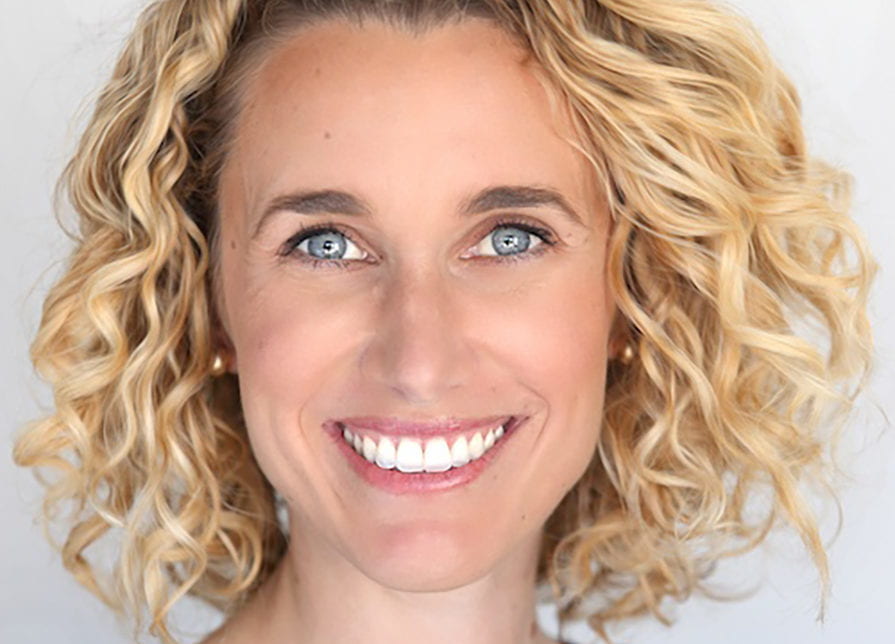
The University’s Well-being and Your Own
By Lynn Lipinski
Chantelle Rice Collins isn’t sure who nominated her to participate in USC’s culture change efforts, but their reasons for doing so become clear once she starts talking about her passion for cultivating individual well-being.
Rice Collins directs the USC Occupational Therapy Faculty Practice, the private clinic at the USC Mrs. T.H. Chan Division of Occupational Science and Occupational Therapy where occupational therapists help patients transform their lifestyles to deal with a variety of medical diagnoses and conditions.
Her expertise in how people make positive changes has been invaluable to the Working Group on University Culture, of which Rice Collins is a member. She hopes that her work in this effort and the earlier Task Force on Workplace Standards and Employee Wellness will help create a more positive environment at the university.
“This isn’t fluff,” Rice Collins said. “Creating nurturing environments at USC is for the benefit and the effectiveness of the university. We can start small, but we need to think long term.”
Achieving Lasting Change
As Rice Collins sees it, the university community’s focus shouldn’t be on how quickly change is achieved. Instead, she urges those involved to pay attention to how well the foundation is being laid to sustain those positive changes over time.
“One of the most difficult parts of change is consistency. We can implement changes, but if we don’t have structures in place to reinforce them then the effort is not worth it,” she said.
Once those systems and processes are in place, it’s up to the individuals within the university to make sure that they are assisting and mentoring others to achieve their full potential.
“That starts at the top, and the university leaders need to model those behaviors,” she said.
Managers Are on Front Lines of Change
As a manager and culture change proponent, Rice Collins seeks to create an environment where people want to show up at work every day. It’s part of her personal management philosophy to see co-workers and direct reports holistically as individuals, not just as a means to an end.
It also requires shifting the focus beyond the workplace to think about the impact of the organization on the health and well-being of employees outside of the office.
“I want their loved ones to know that when they go to work, they’re being well taken care of, that they’re respected and that they’re able to serve and help other people in the ways they want to,” she said. “That is what really drives me on a daily basis and why I want to improve the culture.”
At the end of the day, Rice Collins said, people want to work and want to contribute to a larger purpose, such as the one embodied in USC’s central mission — the development of human beings and society as a whole through the cultivation and enrichment of the human mind and spirit. But she understands that working in unhealthy or unsupportive environments can inhibit rather than promote a good quality of life.
“If we can change the culture at USC and we can improve the quality of the work experience for the employees, then that will have a radiating impact on people’s health,” she said.
The Power of the Individual
While the workplace has a definite impact on an individual’s well-being, the good news is that there are small steps each person can take to improve their own healthy outlook. In other words, you have the power to enhance your well-being with your own actions.
For those seeking to boost their productivity and creativity, Rice Collins has some advice that might seem counter-intuitive but works. That advice: Take care of yourself first, whether that means finding a few minutes for yourself during the workday, getting up and moving around more or socializing with friends.
Often, she said, patients who come to her practice feeling stressed and anxious put themselves last on the list. They skip lunch and mandatory breaks; they stop socializing with friends; they forego exercise.
Rice Collins admits that it can be hard to get back into the habits of putting one’s self first, particularly in times of stress and change. Even those who acknowledge the importance of self-care may encounter an internal natural resistance to doing things that are good for them.
“It seems like taking care of ourselves is going to detract from productivity, but it’s not,” she said.
Most people, she added, find that building healthy habits doesn’t detract from work performance. Once they take the leap, they come to realize that simple things like getting enough sleep and asking others for help make them more effective.
It’s especially true in health care environments, like the faculty practice Rice Collins manages.
“If we don’t take care of our health care providers, we’re not going to be effective practitioners for our patients,” she said.
For skeptics or those who feel overwhelmed by the magnitude of changes that might be needed, personally or university-wide, Rice Collins draws on her knowledge of the complexities of human behavior change.
Even when people do not like the way things are, they often stay stuck because they find comfort in the familiar. A way to break through and make real change is to start small with a first step.
“Small changes have a radiating impact on the greater whole,” she said. “Once a person experiences the positive benefits of those changes, their mind expands and self-efficacy increases. The end result? They start to think, ‘What else am I capable of?’”